Caster Semenya
One of the most complex issues currently facing sports dates back to a 2009 track and field meet in Germany, where an unknown 18-year-old South African woman swept through a field of the world's best runners to win the world title. The teenager was barely out of breath when she tensed her muscles at the end of the race.
What quickly became clear was that the sport faced an unprecedented dilemma with the arrival of Caster Semenya.
Two-time Olympic and three-time world 800m champion Caster Semenya, 34, was banned from competing in her favourite event from 2019 under a set of rules drawn up by athletics authorities due to her dominance.
They claim that her natural testosterone level is much higher than that of a typical woman and that it must be medically reduced so that she can compete fairly with other women.
Caster Semenya refused to artificially alter her hormones and challenged the rules on grounds of discrimination before the Court of Arbitration for Sport in Switzerland, then the Swiss Supreme Court, and now the European Court of Human Rights.
A ruling handed down Thursday by the European Court's highest chamber - Caster Semenya's last legal challenge after losing the other two - concluded that she had not received a fair trial before the Swiss Supreme Court.
The decision kept Semenya's case alive and reignited a years-long battle over individual rights and the perception of fairness in sport, with implications for the entire sporting world.
A complex question
Semenya is not transgender, and her case has sometimes been mistakenly conflated with that of transgender athletes . She was assigned female at birth, raised as a girl, and has always identified as a woman.
After years of secrecy due to medical confidentiality, it was made public in 2018 that she suffered from one of the many conditions known as differences of sex development (DSD). These are sometimes known as intersex conditions . Semenya was born with typically male XY chromosomes and female physical traits. Her condition causes her to have higher levels of testosterone than those typically female.
World Athletics , the governing body for track and field, claims this gives her an unfair advantage , similar to that of a man, when competing against other women, due to the link between testosterone and muscle mass and cardiovascular performance. It claims that Semenya and a relatively small number of other DSD athletes who have emerged since her must suppress their testosterone below a specific level in order to compete in women's competitions.
The case has transcended sport and reached the highest European Court of Human Rights, largely because of its central issue: Caster Semenya claims that sporting rules restrict the rights she has always known as a woman in all other areas of life and prevent her from practicing her profession. World Athletics has asserted that Semenya is "biologically a man . "
How the rules work
The rules of athletics are based on the conclusion that high testosterone levels provide an athletic advantage, although this conclusion has been challenged in one of the many complicated details of Semenya's case.
To comply with the rules, athletes with DSD must suppress their testosterone below a threshold that, according to World Athletics, will place them within the typical female range. Athletes achieve this by taking daily contraceptive pills or using hormone-blocking injections, and this threshold is monitored through regular blood tests.
Athletics first introduced a version of its testosterone regulations in 2011 in response to Semenya and has made them stricter over the years. Current rules require affected athletes to reduce their testosterone levels for at least two years before and throughout competition, meaning elite runners with DSD would have to constantly take medication to remain eligible for major events such as the Olympics and world championships.
This has troubled medical experts and ethicists, who have questioned the "off-label" use of birth control pills for athletic eligibility purposes.
Semenya is not alone
While Semenya is the only athlete currently challenging the rules, three other women who have won Olympic medals - Francine Niyonsaba (Burundi), Margaret Wambui (Kenya) and Christine Mboma (Namibia) - have also been sidelined by the rules.
The issue came to a head at the 2016 Olympic Games in Rio de Janeiro, Brazil, when Semenya, Niyonsaba, and Wambui won the gold, silver, and bronze medals in the 800m while the rules were temporarily suspended. Supporters of the ban cited this result as evidence of the insurmountable advantage they held over other women.
The World Athletics Federation is now considering a complete ban on athletes with DSD like Semenya. Its president, Sebastian Coe, said in 2023 that up to 13 elite women in track and field were subject to the rules, without naming them.
What Thursday's decision means
Athletics' rules on DSD have become a model for other sports, such as swimming, another high-profile Olympic code with regulations. Football is considering regulating testosterone in women's competitions.
Gender eligibility is a burning issue for the International Olympic Committee and its new president, Kirsty Coventry, who was elected in March. The IOC addressed the issue urgently after a gender eligibility scandal erupted at last year's Paris Olympics, involving boxers Imane Khelif (Algeria) and Lin Yu-ting (Taiwan).
Most sports will be closely following the Semenya case, which will be referred to the Swiss Supreme Court, or even the highest sports court, even though it could take years. The final outcome—whether it is a victory for Semenya or for World Athletics, would set a definitive precedent for the sport, as there has never been a case of this type.



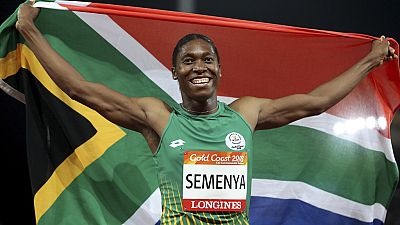

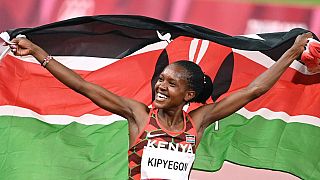
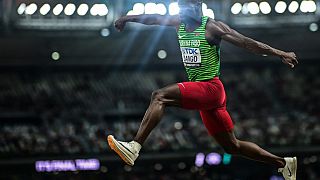
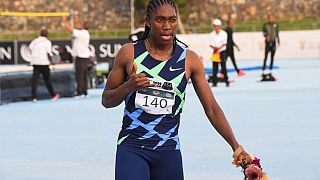

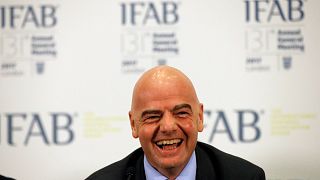




01:53
SMES under pressure as business confidence hits four-year low in South Africa
01:18
SA athlete Semenya did not receive fair trial, ECHR rules
01:16
Court to issue verdict on Semenya's sex eligibility rule that banned her
Go to video
Former South African deputy president David Mabuza dies at 64
01:05
South Africa: year of power marred by new scandal in coalition government
Go to video
’Black Empowerment’ law stalls Elon Musk's $113 million investment in SA